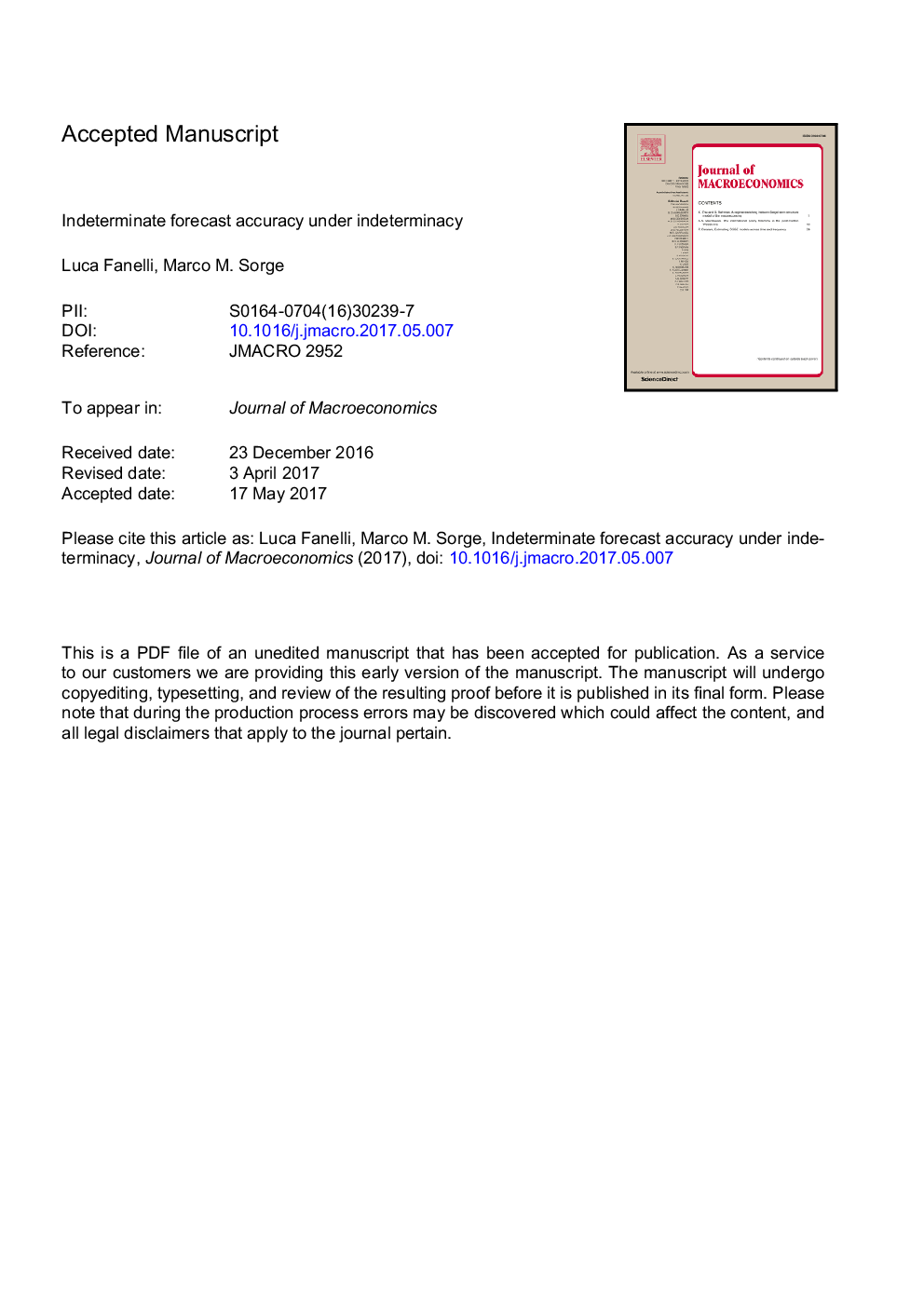| Article ID | Journal | Published Year | Pages | File Type |
|---|---|---|---|---|
| 5101319 | Journal of Macroeconomics | 2017 | 30 Pages |
Abstract
This paper studies whether the observed time variation in the forecast accuracy of macro-econometric models can be reconciled with the monetary policy stance that induces (in)determinacy in stylized DSGE models. Using a small-scale New Keynesian monetary framework as laboratory and structural parameters calibrated to the estimates obtained on U.S. data from different macroeconomics regimes, we exploit reduced-form econometric models - such as Vector Autoregressions - to assess their regime-specific forecastability. We show that conducting (pseudo) out-of-sample forecast comparisons in the presence of indeterminacy is a non-trivial exercise, even when sunspot shocks play no role in generating the data. Overall, our simulation experiment suggests that equilibrium indeterminacy need not lead to superior (absolute or relative) forecast accuracy. This finding challenges the view that the deteriorating performance of forecast models over the Great Moderation relative to the Great Inflation was entirely due to changes in the U.S. monetary policy.
Related Topics
Social Sciences and Humanities
Economics, Econometrics and Finance
Economics and Econometrics
Authors
Luca Fanelli, Marco M. Sorge,
